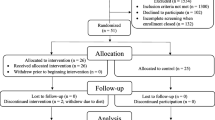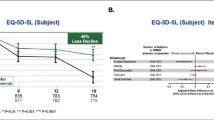Abstract
Background
This study aimed at preliminarily assessing, in a cohort of non-demented amyotrophic lateral sclerosis (ALS) patients, the ecological validity, and more specifically the veridicality, of the Edinburgh Cognitive and Behavioural ALS Screen (ECAS) and the ALS Cognitive Behavioral Screen (ALS-CBS™), by relating their scores to caregiver-report ratings of cognitive changes.
Methods
N = 147 patient-caregiver dyads were recruited. Patients were administered the ECAS and ALS-CBS™, whilst caregiver the Caregiver Behavioral Questionnaire (CBQ) and Beaumont Behavioural Inventory (BBI). An Ecological Cognitive Functioning Index (ECFI) was derived from those items of the CBQ and BBI that tap on executive and language changes. Ecological validity was assessed via both correlational and predictive analyses net of caregiver-rated behavioural changes (as assessed by the ECAS-Carer Interview).
Results
The ECFI was associated with the total scores on both the ECAS (p = .014) and ALS-CBS™ (p = .017). When looking at ECAS and ALS-CBS™ subscales, those assessing verbal fluency were selectively associated with the ECFI. The ECFI was higher in patients performing defectively on the ECAS (p = .004) and on the ALS-CBS™ (p = .027).
Discussion
This study suggests that both the ECAS and the ALS-CBS™ represent a valid estimate of non-demented ALS patients’ cognitive status in the real world, also highlighting the clinical relevance of cognitive changes reported by caregivers.

Similar content being viewed by others
Data availability
Datasets associated with the present study have been stored on an online repository (https://doi.org/10.5281/zenodo.12179998). These datasets cannot be made publicly available on ethical-legal grounds but can be made available upon reasonable request of interested researchers to the corresponding author, who will forward a request for a data transfer agreement to the relevant Ethical Committee.
References
Strong MJ, Abrahams S, Goldstein LH, Woolley S, Mclaughlin P, Snowden J et al (2017) Amyotrophic lateral sclerosis-frontotemporal spectrum disorder (ALS-FTSD): revised diagnostic criteria. Amyotroph Lateral Scler Frontotemporal Degener 18(3–4):153–174
Huynh W, Ahmed R, Mahoney CJ, Nguyen C, Tu S, Caga J et al (2020) The impact of cognitive and behavioral impairment in amyotrophic lateral sclerosis. Expert Rev Neurother 20(3):281–293
Woolley SC, York MK, Moore DH, Strutt AM, Murphy J, Schulz PE et al (2010) Detecting frontotemporal dysfunction in ALS: utility of the ALS cognitive behavioral screen (ALS-CBS™). Amyotroph Lateral Scler 11(3):303–311
Abrahams S, Newton J, Niven E, Foley J, Bak TH (2014) Screening for cognition and behaviour changes in ALS. Amyotroph Lateral Scler Frontotemporal Degener 15(1–2):9–14
Simon N, Goldstein LH (2019) Screening for cognitive and behavioral change in amyotrophic lateral sclerosis/motor neuron disease: a systematic review of validated screening methods. Amyotroph Lateral Scler Frontotemporal Degener 20(1–2):1–1
Gosselt IK, Nijboer TC, Van Es MA (2020) An overview of screening instruments for cognition and behavior in patients with ALS: selecting the appropriate tool for clinical practice. Amyotroph Lateral Scler Frontotemporal Degener 21(5–6):324–336
Taule T, Søvik M, Lein RK, Wehling E, Aßmus J, Rekand T (2020) Psychometric properties of cognitive assessment in amyotrophic lateral sclerosis: a systematic review. Patient Relat Outcome Meas 22:181–194
Chaytor N, Schmitter-Edgecombe M (2003) The ecological validity of neuropsychological tests: a review of the literature on everyday cognitive skills. Neuropsychol Rev 13:181–197
Aiello EN, Rimoldi S, Bolognini N, Appollonio I, Arcara G (2022) Psychometrics and diagnostics of Italian cognitive screening tests: a systematic review. Neurol Sci 43:821–845
Brooks BR, Miller RG, Swash M, Munsat TL (2000) El Escorial revisited: revised criteria for the diagnosis of amyotrophic lateral sclerosis. Amyotroph Lateral Scler Other Motor Neuron Disord 1(5):293–299
Gorno-Tempini ML, Hillis AE, Weintraub S, Kertesz A, Mendez M, Cappa SF et al (2011) Classification of primary progressive aphasia and its variants. Neurology 76(11):1006–1014
Rascovsky K, Hodges JR, Knopman D, Mendez MF, Kramer JH, Neuhaus J et al (2011) Sensitivity of revised diagnostic criteria for the behavioural variant of frontotemporal dementia. Brain 134(9):2456–2477
Tremolizzo L, Lizio A, Santangelo G, Diamanti S, Lunetta C, Gerardi F et al (2020) ALS Cognitive Behavioral Screen (ALS-CBS): normative values for the Italian population and clinical usability. Neurol Sci 41:835–841
Poletti B, Solca F, Carelli L, Madotto F, Lafronza A, Faini A et al (2016) The validation of the Italian Edinburgh cognitive and behavioural ALS screen (ECAS). Amyotroph Lateral Scler Frontotemporal Degener 17(7–8):489–498
Aiello EN, Solca F, Greco LC, La Tona A, Torre S, Carelli L et al (2023) Standardization of the Italian ALS-CBS™ caregiver behavioral questionnaire. Front Psychol 13:1–6
Iazzolino B, Pain D, Laura P, Aiello EN, Gallucci M, Radici A et al (2022) Italian adaptation of the Beaumont Behavioral Inventory (BBI): psychometric properties and clinical usability. Amyotroph Lateral Scler Frontotemporal Degener 23(1–2):81–86
Poletti B, Aiello EN, Solca F et al (2023) Diagnostic properties of the Italian ECAS Carer Interview (ECAS-CI). Neurol Sci 44:941–946
Cedarbaum JM, Stambler N, Malta E, Fuller C, Hilt D, Thurmond B et al (1999) The ALSFRS-R: a revised ALS functional rating scale that incorporates assessments of respiratory function. J Neurol Sci 169(1–2):13–21
Kimura FC, Fujimura C, Ishida S, Nakajima H, Furutama D, Uehara H et al (2006) Progression rate of ALSFRS-R at time of diagnosis predicts survival time in ALS. Neurology 66(2):265–267
Roche JC, Rojas-Garcia R, Scott KM, Scotton W, Ellis CE, Burman R et al (2012) A proposed staging system for amyotrophic lateral sclerosis. Brain 135(3):847–852
Chiò A, Hammond ER, Mora G, Bonito V, Filippini G (2015) Development and evaluation of a clinical staging system for amyotrophic lateral sclerosis. J Neurol Neurosurg Psychiatry 86(1):38–44
Kim HY (2013) Statistical notes for clinical researchers: assessing normal distribution (2) using skewness and kurtosis. Restor Dent Endod 38(1):52–54
Green JA (2021) Too many zeros and/or highly skewed? A tutorial on modelling health behaviour as count data with Poisson and negative binomial regression. Health Psychol Behav Med 9(1):436–455
Aiello EN, Greco LC, La Tona A, Solca F, Torre S, Carelli L et al (2023) Clinimetrics of the cognitive section of the Italian ALS cognitive behavioral screen (ALS-CBS™). Neurol Sci 44(4):1243–1249
Abrahams S, Leigh PN, Harvey A, Vythelingum GN, Grise D, Goldstein LH (2000) Verbal fluency and executive dysfunction in amyotrophic lateral sclerosis (ALS). Neuropsychologia 38:734–747
Canu E, Castelnovo V, Rancoita PM, Leocadi M, Lamanuzzi A, Spinelli EG et al (2023) Italian reference values and brain correlates of verbal fluency index–vs standard verbal fluency test–to assess executive dysfunction in ALS. Amyotroph Lateral Scler Frontotemporal Degener, 1–9
Whiteside DM, Kealey T, Semla M, Luu H, Rice L, Basso MR et al (2016) Verbal fluency: language or executive function measure? Appl Neuropsychol Adult 23(1):29–34
Aita SL, Beach JD, Taylor SE, Borgogna NC, Harrell MN, Hill BD (2019) Executive, language, or both? An examination of the construct validity of verbal fluency measures. Appl Neuropsychol Adult 26(5):441–451
McMillan CT, Wuu J, Rascovsky K, Cosentino S, Grossman M, Elman L et al (2022) Defining cognitive impairment in amyotrophic lateral sclerosis: an evaluation of empirical approaches. Amyotroph Lateral Scler Frontotemporal Degener 23(7–8):517–526
Aiello EN, Iazzolino B, Pain D, Peotta L, Palumbo F, Radici A et al (2022) The diagnostic value of the Italian version of the Edinburgh Cognitive and Behavioral ALS Screen (ECAS). Amyotroph Lateral Scler Frontotemporal Degener 23(7–8):527–531
Solca F, Aiello EN, Torre S, Carelli L, Ferrucci R, Verde F, Ticozzi N et al (2023) Prevalence and determinants of language impairment in non-demented amyotrophic lateral sclerosis patients. Eur J Neurol 30(3):606–611
Pinto-Grau M, Hardiman O, Pender N (2018) The study of language in the amyotrophic lateral sclerosis-frontotemporal spectrum disorder: a systematic review of findings and new perspectives. Neuropsychol Rev 28:251–268
Aiello EN, Feroldi S, Preti AN, Zago S, Appollonio IM (2022) Dysgraphic features in motor neuron disease: a review. Aphasiology 36(10):1249–1274
Crockford C, Newton J, Lonergan K et al (2018) ALS-specific cognitive and behavior changes associated with advancing disease stage in ALS. Neurology 91:e1370–e1380
Chiò A, Moglia C, Canosa A et al (2019) Cognitive impairment across ALS clinical stages in a population-based cohort. Neurology 93:e984–e994
Pfeifer L, Drobetz R, Fankhauser S, Mortby ME, Maercker A, Forstmeier S (2013) Caregiver rating bias in mild cognitive impairment and mild Alzheimer’s disease: impact of caregiver burden and depression on dyadic rating discrepancy across domains. Int Psychogeriatr 25(8):1345–1355
Acknowledgements
the Authors are thankful to patients and their caregivers. The Authors acknowledge the support of the Italian Ministry of Health – Ricerca Corrente and of the Italian Ministry of Education and Research (“Dipartimenti di Eccellenza” Program 2023–2027 - Department of Pathophysiology and Transplantation, “Dino Ferrari” Center, Università degli Studi di Milano).
Funding
This work was supported by Italian Ministry of Health - Ricerca Finalizzata (RF-2021-12374238).
Author information
Authors and Affiliations
Contributions
ENA: conceptualization, analyses, drafting, revision; FS, BC, GDL: analyses, drafting, revision; CG, AC, EC, AM: data collection, revision; CM, SM, AD, FV, VS: resources, revision; BP, NT: resources, drafting, revision.
Corresponding author
Ethics declarations
Ethical approval
Participants provided informed consent. This study was approved by the Ethics Committee of IRCCS Istituto Auxologico Italiano (I.D.: 2013_06_25).
Disclosure
V. S. received compensation for consulting services and/or speaking activities from Ave**s, Cytokinetics, Italfarmaco, Liquidweb S.r.l., and Novartis Pharma AG, receives or has received research supports from the Italian Ministry of Health, AriSLA, and E-Rare Joint Transnational Call. He is in the Editorial Board of Amyotrophic Lateral Sclerosis and Frontotemporal Degeneration, European Neurology, American Journal of Neurodegenerative Diseases, Frontiers in Neurology. B.P. received compensation for consulting services and/or speaking activities from Liquidweb S.r.l. She is Associate Editor for Frontier in Neuroscience. N. T. received compensation for consulting services from Amylyx Pharmaceuticals and Zambon Biotech SA. He is Associate Editor for Frontiers in Aging Neuroscience. E.N.A. serves as an Editorial Board Member for BMC Neurology. F.V. is Associated Editor for Journal of Alzheimer’s Disease.
Conflict of interest
None.
Additional information
Publisher’s Note
Springer Nature remains neutral with regard to jurisdictional claims in published maps and institutional affiliations.
Rights and permissions
Springer Nature or its licensor (e.g. a society or other partner) holds exclusive rights to this article under a publishing agreement with the author(s) or other rightsholder(s); author self-archiving of the accepted manuscript version of this article is solely governed by the terms of such publishing agreement and applicable law.
About this article
Cite this article
Aiello, E.N., Torre, S., Solca, F. et al. Ecological validity of performance-based cognitive screeners in amyotrophic lateral sclerosis: preliminary evidence. Neurol Sci (2024). https://doi.org/10.1007/s10072-024-07660-z
Received:
Accepted:
Published:
DOI: https://doi.org/10.1007/s10072-024-07660-z




